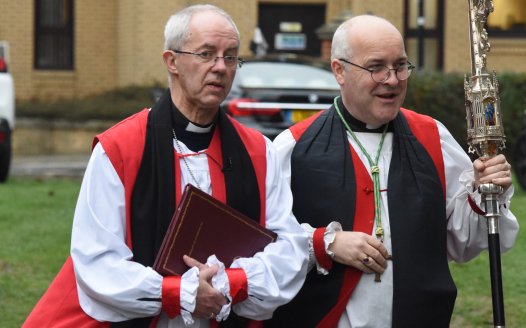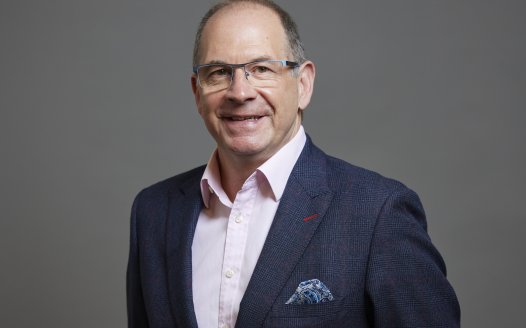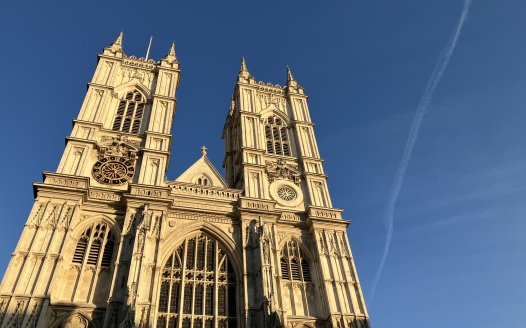Bishops shouldn’t have a role in the Isle of Man’s parliament
Posted: Tue, 2nd Jul 2024 by Muriel Garland
Muriel Garland explains why she supports removing bishop's vote in Tynwald's upper chamber.
Currently, the bishop of Sodor and Man sits by right on the Legislative Council – the upper chamber of the Isle of Man's parliament, Tynwald. Muriel Garland explains why she supports the Constitution Bill, which would remove bishop's vote.
This opinion piece is adapted from a speech that Muriel hoped to present to the Legislative Council (LegCo) last month, before LegCo decided not to have an evidence session.
Why do I believe Tynwald should abolish the bishop's vote? Because I believe the Isle of Man should be a secular democracy, with a government that represents all people, of all religions and none, equally.
A secular democracy promotes freedom of religion, and freedom from religion, in the public sphere. Secularism defends the civil liberties of everybody whatever their beliefs.
Secularism separates religious institutions such as churches from state institutions like parliament. Each has a different role. Parliament is there to make laws and manage the country's affairs. Religions are there to minister to the spiritual needs of their followers and to promote their beliefs.
The separation of the state and religion safeguards our freedoms. It means we are free to believe and practise any belief system we wish, as long as that belief system is not imposed on other people. In a secular state, no one religion is favoured above others.
But when we give an unelected bishop a seat and voting powers in the Legislative Council simply because of their position in the Church of England, we are favouring one denomination of one religion.
Less than 2% of people on the Isle of Man attend regular Church of England services; that percentage has shrunk year by year. Beyond tradition, it's not clear why a representative of this minority religion should still automatically have a seat on LegCo and have voting rights.
Meanwhile, there are numerous members of other Christian denominations on the island, including Methodists, Roman Catholics, Pentecostals and Baptists. There are also Jews, Muslims, Buddhists, Hindus and Baháʼís, among others. And of course, a growing number of people have no religion.
Clearly, the fairest way to conduct our politics is to treat everybody the same, and not favour the Church of England. In a democracy, we proceed by debate and discussion. That debate is skewed if one religion is given a privileged platform.
The Sodor and Man diocese website states the bishop "is there to represent all faiths and none." I maintain it is impossible to represent "all faiths and none". How does a Christian bishop represent a Muslim citizen? Or a Hindu? Or, indeed, an atheist?
The website adds that the bishop also offers "a moral and ethical insight into debates and decisions being made".
It is insulting to imply bishops have a monopoly on moral and ethical insights. Are the other members of LegCo who have been selected by the members of Tynwald's lower chamber, the House of Keys, somehow lacking ethics and morality? I think not.
We all have a code of conduct by which we live and take decisions. You don't have to be religious to form moral viewpoints. It is patronising to suggest members of Tynwald need a resident priest to keep them on the straight and narrow.
Often you hear people say the bishop is a good, clear-thinking and amiable person. But there are lots of good, clear-thinking, amiable people on the island. They don't get to sit in Tynwald and make our laws. The desire to remove the bishop's vote is not a personal attack on any individual bishop; it is about principles, not personalities.
Tynwald has evolved and changed over the years. The Lieutenant Governor, who represents the Crown on the island, used to wield considerable power: they presided over sittings of the Legislative Council and Tynwald Court, until being replaced by the elected President of Tynwald in 1990. The Attorney General, who is one of three ex officio members of LegCo (the other two being the bishop and the President of Tywald) had a vote until relatively recently.
Members of LegCo were traditionally formerly members of the House of Keys who somehow slid upstairs by some mysterious means; it was hinted that this process was to avoid them losing their seat in a future election. Today, LegCo members may still not have a mandate from the public, but we do know who elects them and the selection process has become more transparent than it was years ago. And LegCo does not help appoint the chief minister anymore. Good institutions should improve with the passage of time.
It even used to be the case that the Archdeacon of Man and the Vicar General of Sodor and Man were present in Tynwald, but they were removed in 1919 under the Constitution Act.
Now the bishop stands out like a sore thumb as the last unelected voting member of LegCo. The bishop is selected via the Church of England's internal, shadowy process, and then appointed by the British monarch on the recommendation of the UK Prime Minister. Strange enough already – but stranger still when you consider that the Isle of Man is not part of the United Kingdom but is a Crown Dependency. Our bishop does not have a mandate from the Manx people.
Some have raised concerns that abolishing the bishop's vote in Tynwald will result in the diocese of Sodor and Man being subsumed into an English diocese. This is an argument based on sentiment alone; how the Church of England manages its affairs and deals with dwindling congregations and clergy is up to them. They should not use concerns about their own interests as an argument, or even veiled threat, to keep the bishop's vote.
Bishops and their supporters have said the Church of England's established status justifies them having a role in government and drawing up legislation. But many people believe the Church should not be established at all, because such an arrangement is archaic and inappropriate in a 21st century democracy. And many of those people are members of the Church of England.
As for the Constitution Bill, things have unfortunately stalled. A panel has now been set up to "consider the effects" of removing the bishop's vote. This feels like an attempt to delay the bill; there is no date for the panel to produce a report on their findings.
You don't have to be an atheist or a humanist to want a secular society. You simply need to be a person who wants equality, freedom and fairness for everybody regardless of their beliefs. Over 50% of countries now have no state religion. In retaining its religious privileges, the Isle of Man is in danger of getting left behind. It is time to modernise Tynwald and allow it to continue to evolve as it always has done over the last 1,000 years. It is time to remove the bishop's vote.
Scrap the bishops’ bench
Join our campaign to end the archaic, unfair and undemocratic bishops' bench in the House of Lords.









